
15 '80s punk albums that shaped the '90s/'00s pop punk boom
When bands like Green Day, The Offspring, NOFX and Rancid helped pop punk explode in 1994/1995, the mainstream called it a “punk revival” because it was the first time that punk had a real mainstream presence since the first-wave ’70s bands. But as many people knew then and even more people know now, the mid ’90s pop punk boom wasn’t a revival of anything; it was the culmination of a sound that had been bubbling on an underground level since the early 1980s. When punk’s first wave started to die down and make way for the more digestible, mainstream-embraced sound of new wave, a new crop of bands took the loud, fast sounds of the Ramones and the Dead Boys in a more extreme direction: hardcore. Once hardcore bands realized they could combine the genre’s speed, intensity, and simplicity with bright, catchy melodies, pop punk was born.
Pop punk got even bigger and more sonically diverse after the pivotal 1999 release of blink-182‘s Enema of the State, and it continued to expand its sound and fanbase as emo took off in the early/mid 2000s and hugely popular bands like Fall Out Boy, Paramore, and My Chemical Romance made the line between pop punk and emo look close to nonexistent. The genre has since faded in popularity, but the reason I dedicate an entire column to it in the year 2020 is that it continues to manifest itself in interesting ways and continues to be an influence on so much of today’s music, from indie rock to hip hop and beyond.
For this edition of ‘In Defense of the Genre,’ I’m taking a look back at the ’80s punk albums that paved the way for the eventual explosion of albums like Dookie, Smash, and Enema of the State. In some ways, you could say every notable ’80s punk band paved the way — obviously almost all the popular ’90s and early ’00s punk bands loved Black Flag, Minor Threat, Dead Kennedys, Bad Brains, and all the other key hardcore bands. And of course first-wave punk bands like the Ramones, Buzzcocks, Sex Pistols, and The Clash were all “poppy” and were all major influences on the bands who brought punk back to the mainstream in the ’90s. But this list is more specifically about the melodic hardcore bands who helped turn pop punk into a distinct subgenre, and who often still don’t get the credit they deserve for doing so. Some of the bands on this list are more obvious than others — though even the very popular ones only became as popular as they did later on — but what they all have in common is that they all deliberately combined bright melodies with the sound of the hardcore punk underground and they all played a significant role in shaping the sound of pop punk as we’ve known it for the past 25+ years.
For this list, I picked 15 ’80s punk albums that paved the way for the ’90s and early ’00s pop punk booms, presented chronologically and unranked. You could probably come up with over 100 ’80s punk albums that fit this criteria one way or another, so this is by no means the complete history of ’80s proto-pop punk albums, but these 15 albums are all albums I believe left a significant, noticeable, and lasting impact on many of the bands who ended up defining pop punk in the ’90s and 2000s. (Some of those bands — like Green Day, The Offspring, and NOFX — had already begun shaping their own soon-to-be-popular sound in the late ’80s, but their most significant releases came later on.)
Read on for the list and feel free to drop your own proto-pop punk faves in the comments…

Descendents – Milo Goes to College (1982)
Outside of poppy first-wave punk bands like the Ramones, The Clash, and the Buzzcocks, there’s a good argument to be made that no album had a more profound impact on the development of pop punk than the Descendents’ first full-length, 1982’s Milo Goes to College. It was firmly rooted in the hardcore scene — released on the Minutemen’s New Alliance Records, produced by SST’s in-house producer Spot, and played with the same rawness, speed, and intensity as early Black Flag (who Descendents drummer Bill Stevenson later became a member of) — but the Descendents added in bright, catchy melodies through Milo Aukerman’s bratty, snotty delivery, and basically invented pop punk in the process. And it wasn’t just the sound of pop punk that Milo Goes to College paved the way for; it was the lyrical content too. With songs about hating your parents, wanting girls to like you, being a loser, and a hint of social criticism, Milo Goes to College laid out what would be the primary concerns for a large majority of pop punk bands to come. Just about every major pop punk band has sung the Descendents’ praises, but one band in particular who took notes directly out of Milo Goes to College‘s playbook was also the band who brought punk to its widest audience: blink-182. “[Descendents are] the only reason blink-182 existed,” Tom DeLonge once said. “It was the first band the three of us all agreed on.” Mark Hoppus said they “changed the trajectory of [his] life forever.” Even if they didn’t say it, just a cursory listen to blink-182’s ’90s output would make the Descendents’ influence very, very clear. When blink covered Milo Goes to College standout “Hope” without changing a single thing about it, it sounded… exactly like a blink-182 song. blink may have introduced this kind of music to more people than ever in the late ’90s and early 2000s, but it was the Descendents who created it.
Pick up Descendents vinyl and merch here.

Misfits – Walk Among Us (1982)
It’s impossible to overstate the influence of the Misfits’ horror punk image on AFI, Alkaline Trio, My Chemical Romance, and basically any other goth-inspired punk band who hit it big in the ’90s and ’00s, but the influence of the band’s music was arguably even wider than that of their image. They had plenty of songs that sounded as evil as the band and their iconography looked, but at least half of 1982’s Walk Among Us predicted the exact sound of the pop punk boom. “Astro Zombies” would’ve been a hit song if it came out in 1994, and others on this album like “Skulls,” “Hatebreeders,” and “I Turned Into A Martian” sound like direct predecessors to that era of punk as well. The melodic “whoa-oh”s on this album might be the Misfits’ most significant contribution to pop punk, but just about every other aspect of it was influential too. “Skulls” sounds like a Green Day song until the vocals come in, and you could be fooled into thinking the intro to “Astro Zombies” was a Rancid song if you didn’t know any better. It’s hard to think of a major punk band who haven’t covered the Misfits at some point, and it’s easy to see why all these musicians are so fond of them. Without their influence, the ’90s/’00s punk explosion wouldn’t have sounded the way it did.

Social Distortion – Mommy’s Little Monster (1983)
Social Distortion initially came out of the same Orange County hardcore scene as Adolescents, Agent Orange, and D.I. (and shared members with all of those bands), and on their early singles (which are now readily available on the Mainliner: Wreckage from the Past compilation), they more or less sounded like a straight-up hardcore band. But by their 1983 debut full-length Mommy’s Little Monster, they took a more melodic turn that would prove to be highly influential. Mommy’s Little Monster didn’t fully embrace the country-punk sound that Social Distortion would develop on 1988’s Prison Bound and really dive into on their breakthrough 1990 major label debut, but it hinted at a love of Americana and helped create a blend of punk energy and “traditional songwriting” that would reverberate through the music of Rancid and The Offspring to Against Me! and Hot Water Music to The Gaslight Anthem to The Menzingers. It’s also worth noting that Social D themselves infiltrated the mainstream a good four years before the “punk revival.” Their aforementioned major label debut scored a few alt-rock hits and 1992’s “Bad Luck” was an even bigger one. But before any of that, there was Mommy’s Little Monster, a punk record that gracefully balanced raw power and melody and that was so clearly ahead of its time it’s almost hard to believe how old it actually is.

7Seconds – The Crew (1984)
About 500 miles Northeast of the SoCal hardcore scene was Reno, Nevada band 7Seconds, who took a uniquely melodic approach to hardcore that would change the game forever. Kevin Seconds had a similarly snotty, bratty delivery to the other prominent hardcore bands of the time, and he still wasn’t exactly Frank Sinatra, but he could carry a melody and he always made sure 7Seconds’ songs were songs you could hum along to. Following some comparatively straightforward early EPs and demos, 7Seconds perfected this sound on their first proper full-length, 1984’s The Crew. The album stuck to extremely short songs at whiplash-inducing speeds, but Kevin helped make these songs sound genuinely anthemic, and a hearty helping of “whoa-ohs” didn’t hurt either. The Crew had a direct impact on the more melodic sides of the NYC youth crew scene and the DC emocore scene, and its influence could be heard in bigger ’90s/’00s bands like The Bouncing Souls, H2O, and Rise Against, and indirectly in even bigger bands like Taking Back Sunday and Fall Out Boy. Even three and a half decades later, songs like “Young ‘Til I Die,” “The Crew,” and “Not Just Boys Fun” (which, though 7Seconds were an all-male band, had an anti-sexism message that has also been influential within punk) still rival the more widely-loved bands 7Seconds helped pave the way for. The recording quality is rough, but it’s easy to hear how the music was groundbreaking for its time and still sounds timeless today.
Pick up the new 7Seconds vinyl reissues here.
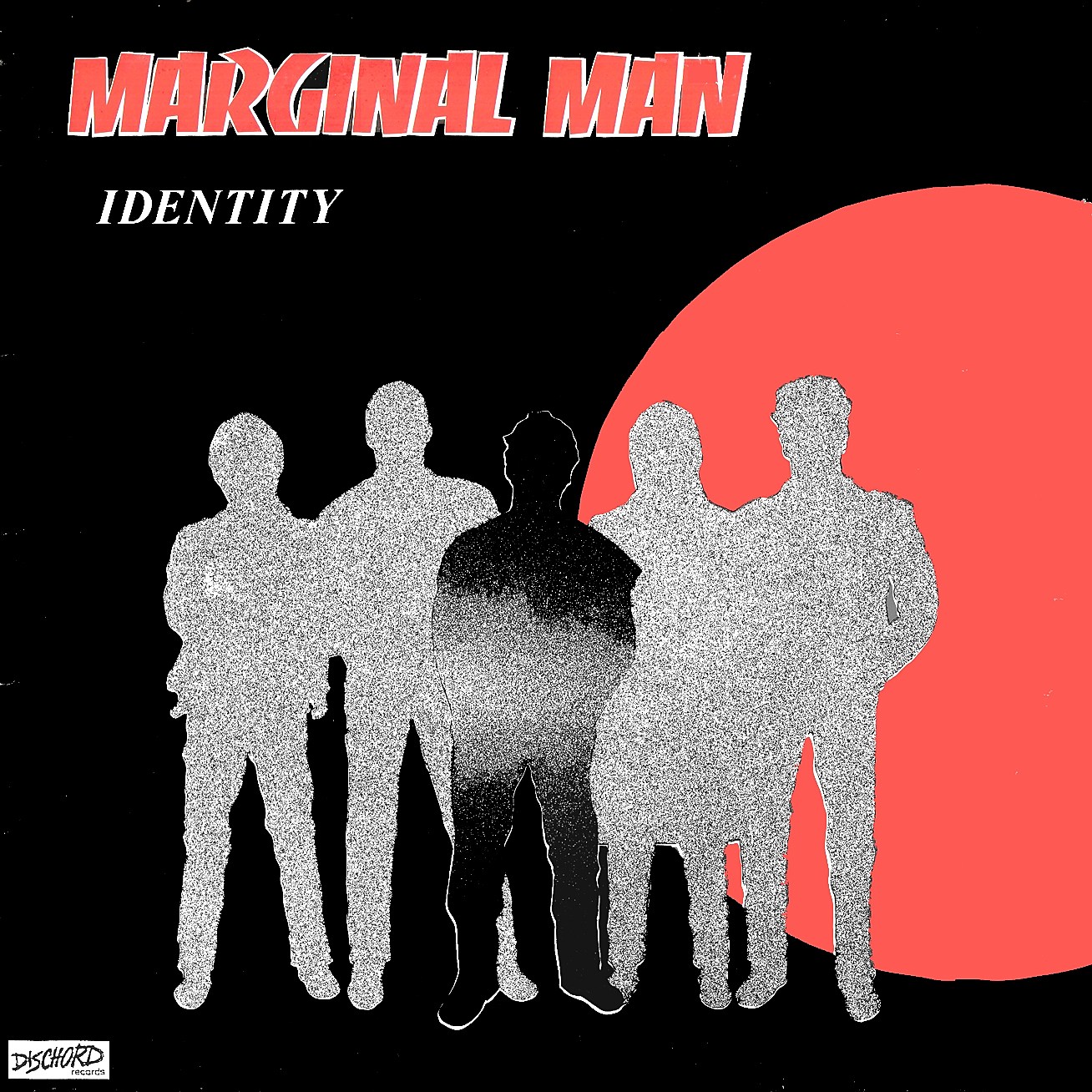
Marginal Man – Identity (1984)
Marginal Man emerged out of the ashes of early ’80s DC/Dischord hardcore band Artificial Peace, and they became one of the first DC bands to look outside of the confines of hardcore and incorporate bright chord progressions and clean, melodic singing. Their 1984 debut Identity was kind of caught between their more aggressive past and the more melodic band they were becoming, but melodic songs like “Friend,” “Marginal Man,” “Mental Picture,” and “Missing Rungs” played a crucial role in paving the way for other bands to fuse pop and punk in the DC scene and beyond. “Friend” was the major highlight, a seamless blend of hardcore grit and the sweeter sounds of power pop, jangle pop, and new wave (and some great “whoah”s) that sounds like ’90s pop punk in a nutshell. H2O covered it on their 1997 sophomore album and you wouldn’t have realized it wasn’t an H2O original if you didn’t know any better.
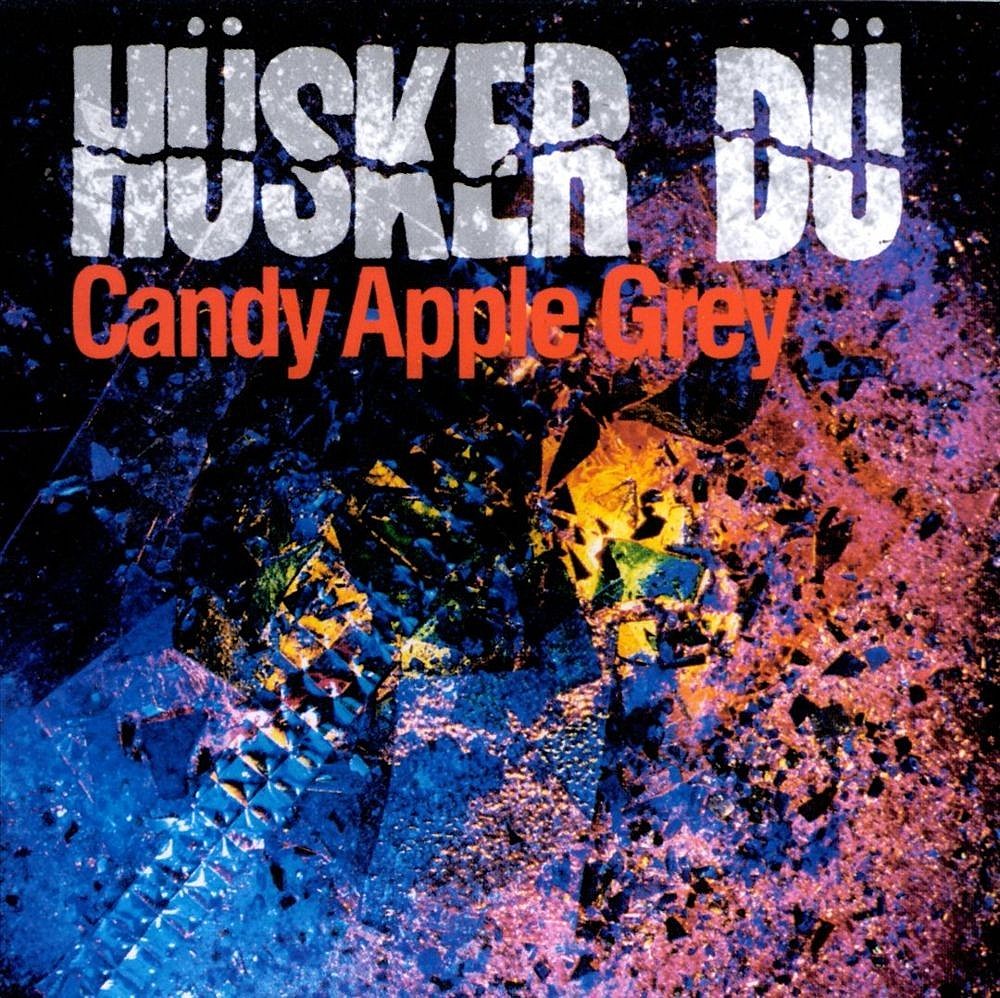
Husker Du – Candy Apple Grey (1986)
Husker Du helped invent alternative rock as we know it with their landmark 1984 double album Zen Arcade and its followup albums (1985’s Flip Your Wig in particular predicted what the alt-rock mainstream wound sound like a decade later), and their impact was felt on pop punk too. It’s hard to pick just one Husker Du album for this list, but their 1986 major label debut Candy Apple Grey wins because of “Don’t Want to Know If You Are Lonely,” which would’ve been a pop punk smash if it came out in 1994. It sounds as much as like proto-Green Day as the Buzzcocks did, and Green Day didn’t try to hide their love of the song — they released a faithful cover of it. Others on this album like “I Don’t Know For Sure” and “Eiffel Tower High” found Husker Du offering up punchy punk rock and sugary pop in equal measure, and it’s easy to hear how this former hardcore band was shaping pop punk with those songs too. Husker Du broke up before they were able to enjoy the same success that Green Day, Nirvana, and their other followers enjoyed, and even though co-frontman Bob Mould’s next band Sugar went on to release an alt-rock masterpiece with their 1992 debut Copper Blue, both Husker Du and Sugar remained underdogs compared to the bands they inspired. Maybe it was for the best; extreme mainstream exposure took its toll on a lot of major pop punk and alt-rock bands, but Bob Mould is still churning out great record after great record today, nearly 40 years after the first Husker Du single.
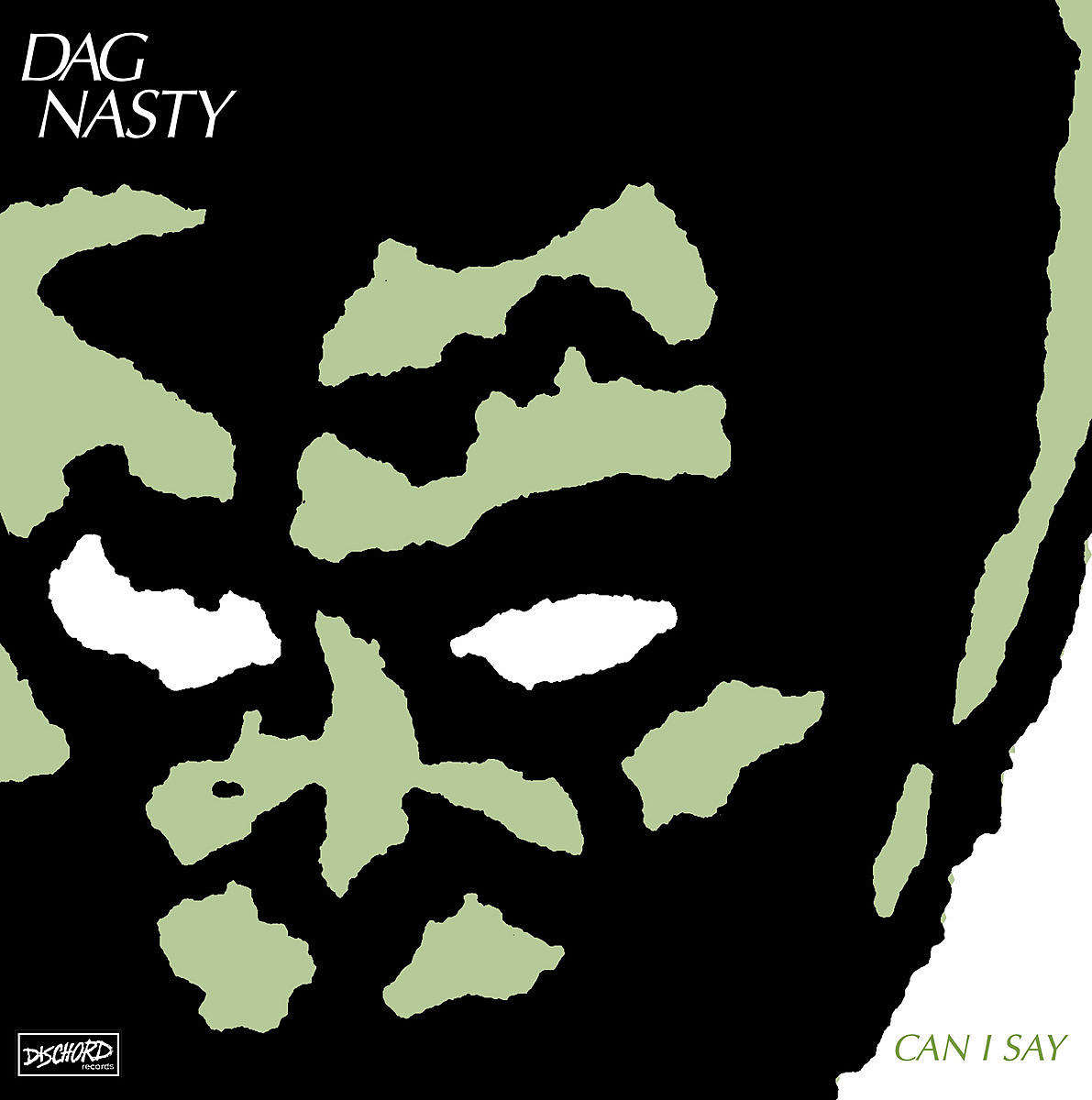
Dag Nasty – Can I Say (1986)
Marginal Man helped bring pop melodies to the DC hardcore scene, but it was taken to the next level by Dag Nasty, the band guitarist Brian Baker formed after the breakup of Minor Threat. Brian was said to have taken a lot of the influence from the Descendents (who Dag Nasty toured with early on), but when he brought that influence to the tougher sounds of East Coast hardcore, a whole new sound was born. It’s been called melodic hardcore, post-hardcore, emocore, and probably other -cores, and when emo, pop punk, and post-hardcore all simultaneously boomed in the early 2000s, it was impossible to ignore Dag Nasty’s influence on all of it. Dag Nasty underwent a handful of lineup changes (always with Brian Baker as a constant), and though their original and current vocalist is Shawn Brown (also of Swiz), they recorded their classic debut album Can I Say with Dave Smalley. Smalley had a way with melody that made him the perfect candidate for Brian Baker to achieve his more pop-minded dreams. (It also made him a perfect candidate for when Descendents needed a new vocalist for their Milo Aukerman-less band ALL.) Ian MacKaye’s post-Minor Threat bands Embrace and Fugazi (and his Fugazi bandmate Guy Picciotto’s band Rites of Spring) always get all the credit for shaping the emo and post-hardcore genres, but when it comes to the poppier side of that sound, you can’t ignore the influence of Dag Nasty.

Doughboys – Whatever (1987)
The Asexuals were staples of the early/mid ’80s Montreal punk scene, and they had an increasingly melodic hardcore sound that almost definitely took some cues from Husker Du (who they opened for at least once). When vocalist John Kastner left The Asexuals in 1987, he turned his attention to his new band, Doughboys, and their 1987 debut album Whatever was even poppier than The Asexuals, with punchy power chords, bright melodic guitar leads, soaring vocal melodies, and sugary harmonies. It’s pop punk through and through, and it remains a classic. Doughboys sort of faded into relative obscurity, but they were pretty well-known at the time and it seems like a fair assumption that now-popular bands were taking notes from Whatever. While Husker Du were still more firmly in “proto-pop punk” territory, Doughboys went all in on pop punk as we now know it — you could easily fool someone into thinking this album came out in ninety seven rather than ’87. It’s produced really well for a punk record of its time, it has no reservations about going full pop, and every song is a blast.

RKL – Rock N Roll Nightmare (1987)
By the late ’80s, hardcore was going in all kinds of new directions, and one of those directions was metal. RKL (aka Rich Kids on LSD) were one of those bands, as you can very much hear on their classic 1987 album Rock ‘n Roll Nightmare, but the album played a huge role in the development of pop punk as well. When you hear pop punk bands like The Offspring and NOFX getting thrashy over double-time punk beats, you can trace so much of it back to RKL. Fat Mike has called NOFX “a cross between RKL and Bad Religion,” Billie Joe Armstrong was a fan, No Use For A Name were fans, and perhaps the biggest fan of all was Lagwagon’s Joey Cape. “I don’t think there would be a NOFX or a Lagwagon or many bands that sound like us if there hadn’t been an RKL,” said the frontman of Lagwagon, whose entire current lineup except Joey has played in RKL at one point or another. The vocals on Rock N Roll Nightmare are a little rougher around the edges than you might normally associate with “pop punk,” but it’s impossible to deny how much the guitar riffs and the rhythm section informed the sound of the bands who populated Punk-O-Rama and Fat Music comps. They’re your favorite band’s favorite band, and in a just world, they would’ve been way bigger.
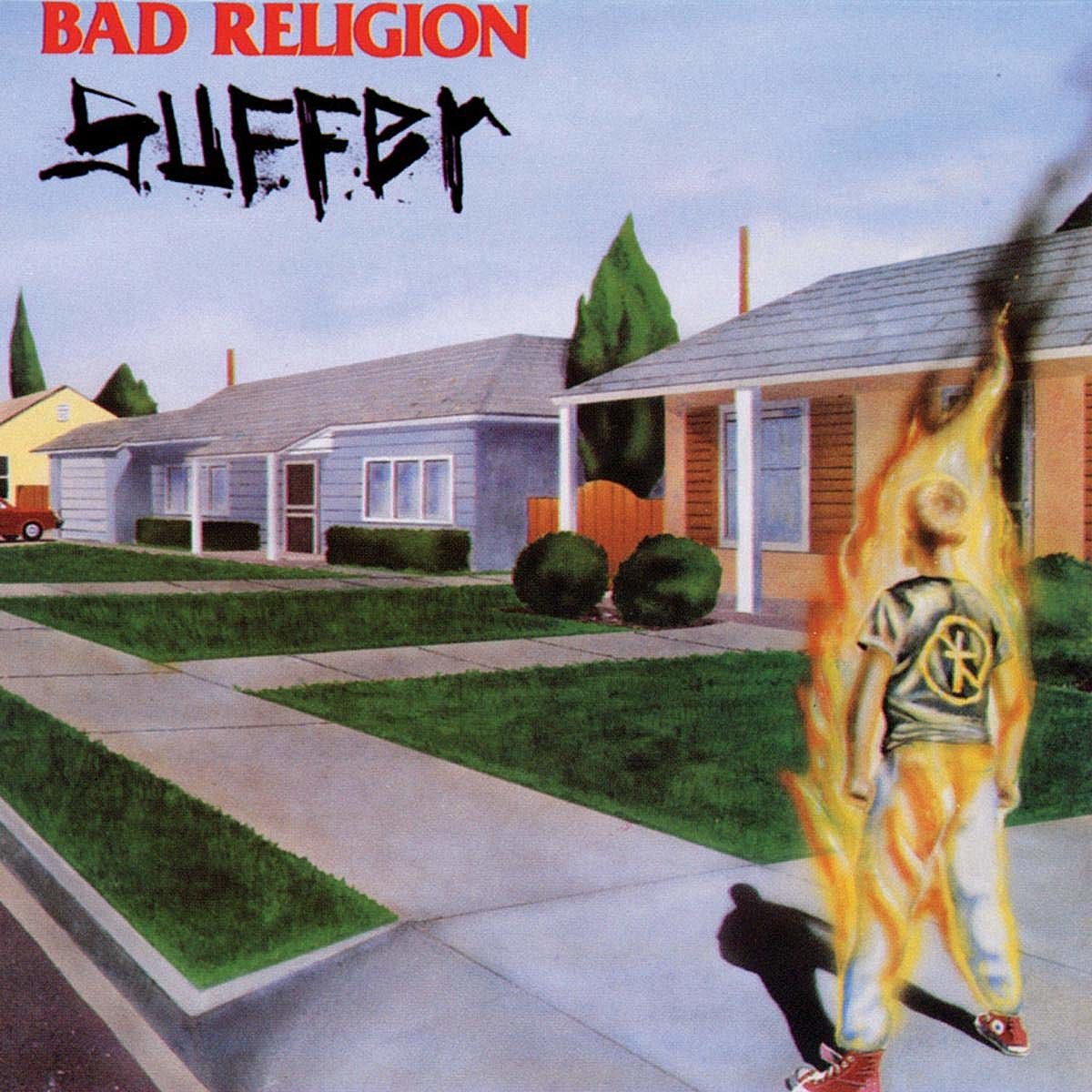
Bad Religion – Suffer (1988)
The same year Descendents released Milo Goes to College, Bad Religion released their first album, How Could Hell Be Any Worse?. It’s one of the true classics of the early hardcore era, and it hinted at a melodic side, but it was still a much darker record than most of what you’d call “pop punk.” It was followed by lineup changes and a surprising turn towards synth-prog-punk (1983’s Into the Unknown), then a return to form (1985’s Back to the Known EP), and then the How Could Hell Be Any Worse? lineup reunited and wrote Suffer, which took the sound of Bad Religion’s debut album in a decidedly more melodic direction. Milo Goes to College was pop punk’s big bang, but as Fat Mike put it, Suffer was “the record that changed everything.” It “really changed the course of NOFX from being a hardcore band to a melodic hardcore band,” he said, and I’m sure NOFX aren’t the only band who would say that. Suffer reinvented Bad Religion, put them at the forefront of melodic punk, and influenced basically every punk band who’s ever utilized melodic singing, harmonies, and “whoahs.” It also turned Bad Religion into the prolific, extremely consistent band that they still are today. They (and guitarist Brett Gurewitz’s label Epitaph Records) have basically been constants in every era of the last 30+ years of punk. When pop punk boomed in the mid ’90s, Bad Religion were there with a couple major label albums and a few modest hits. (Around this time they also welcomed new guitarist Brian Baker of Dag Nasty, who was naturally a perfect fit.) When it boomed again in the early 2000s, Bad Religion were reinvigorated with great new albums that sounded as fresh as the younger bands Bad Religion helped pave the way for. Even this year, as they celebrate their 40th anniversary (with an autobiography and a cancelled tour), they’re as relevant in the punk scene as the even younger bands who currently populate it. They have a lot of great records, but it all goes back to Suffer, the album that changed everything for both Bad Religion and the entire pop punk genre.
Pick up Bad Religion vinyl and merch here.

ALL – Allroy Sez (1988)
Descendents helped write the blueprint for snotty SoCal pop punk with Milo Goes to College and Dave Smalley helped write the blueprint for East Coast melodic hardcore with Dag Nasty’s Can I Say, so it was like a match made in melodic punk heaven when 3/4 of Descendents (Bill Stevenson, Stephen Egerton, Karl Alvarez) formed ALL and recruited Dave Smalley as their first vocalist. Their debut album was 1988’s Allroy Sez, and considering the music was written almost entirely by the three Descendents members, it basically picked right up where Descendents left off (with their 1987 album, also called All). But Allroy Sez also continued to go in a more overtly poppy direction, and Dave Smalley’s vocal chops were up for the task. Once the pop punk boom hit, Descendents would reunite with Milo and release the classic 1996 comeback album Everything Sucks (which was born out of the same writing and demoing sessions as ALL’s underrated 1998 album Mass Nerder), and — as with Bad Religion’s ’90s material — that helped establish Descendents not just as pioneers of pop punk but also as peers of the bands they influenced. That album came 14 long years after Milo Goes to College, and one of the many important bridges between them was ALL’s Allroy Sez.
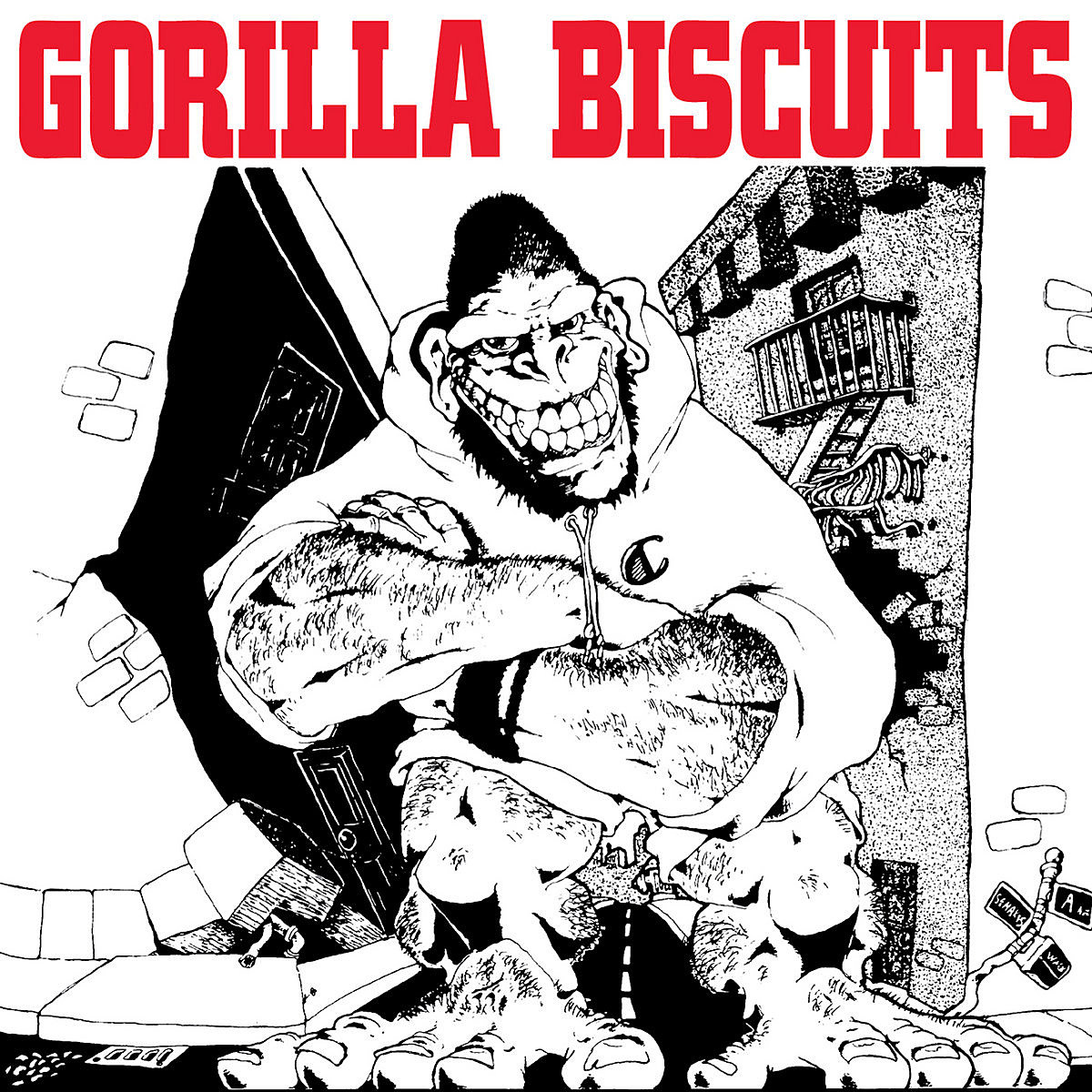
Gorilla Biscuits – Gorilla Biscuits (1988)
New York hardcore had gotten heavier and more aggressive than ever by the late ’80s, but some bands favored a sound that was a little less aggro and more in the spirit of early hardcore, like Youth of Today and Gorilla Biscuits. GB and their core songwriter Walter Schreifels took notes from Youth of Today (who Walter eventually also played in), and they also took some definite cues from the more melodic sounds of 7Seconds, and helped bring that Reno band’s melodic sound to the East Coast. GB were firmly planted within hardcore, but with frontman Anthony “Civ” Civarelli, Gorilla Biscuits had a vocalist who could carry a melody, and it’s easy to hear how many hardcore-inspired pop punk bands used Gorilla Biscuits’ sound as a launchpad. Their influence could first be heard in bands like Lifetime and Silent Majority — both underrated bands who are much less popular than a lot of the bands they influenced — but then GB’s sound was taken in an even poppier and more popular direction by The Movielife, Saves The Day, New Found Glory (who covered them), Fall Out Boy (ditto), and more. Love ’em or hate ’em, the NFG and FOB covers make one thing very clear: polished production and radio-friendly singing could turn Gorilla Biscuits songs into pop punk as we know it, but the songwriting was there from the start. (It’s also worth noting that the Walter Schreifels-penned debut album by Civ’s post-GB band CIV, Set Your Goals, is what the pop punk band Set Your Goals is named after.) We’re picking just one album per band for this list, and a lot of people might go with GB’s better produced 1989 album Start Today, but “No Reason Why” puts the self-titled over the edge for me if we’re talking about proto-pop punk. That song is about as straight-up pop punk as hardcore gets.

Naked Raygun – Jettison (1988)
Chicago’s Naked Raygun dabbled in post-punk and post-hardcore (and vocalist Jeff Pezzati and early drummer Santiago Durango were also original members of Steve Albini’s band Big Black), but they also wrote increasingly poppy songs as the years went on, and with 1988’s Jettison, they came out with a proto-pop punk classic. Naked Raygun changed the Chicago punk scene forever and became hometown heroes for bands like Alkaline Trio, Rise Against, The Lawrence Arms, and Fall Out Boy, the latter of whom brought Jeff Pezzati on stage to play a Naked Raygun song with them at Riot Fest 2013. “When it comes to punk rock, they are the gold standard here,” said Riot Fest co-founder Mike Petryshyn. (Dave Grohl has also talked about how Naked Raygun were his first show ever and a big influence.) Jettison really has it all: the fast, bright power chords, the catchy melodies, the perfectly executed “whoahs.” Rise Against bassist Joe Principe said “if you’re not from Chicago, more than likely you don’t get it,” and it’s true that Naked Raygun never got the widespread attention of bands like Bad Religion and Descendents, but when you consider how many bands Naked Raygun’s followers influenced, you realize Naked Raygun either directly or indirectly impacted thousands. And they probably only continue to gain more fans; after joining blink-182, Alkaline Trio’s Matt Skiba name-dropped them in one of that band’s songs. Given blink’s continued success, it seems very possible that that song got a whole new generation of kids googling “Naked Raygun.”
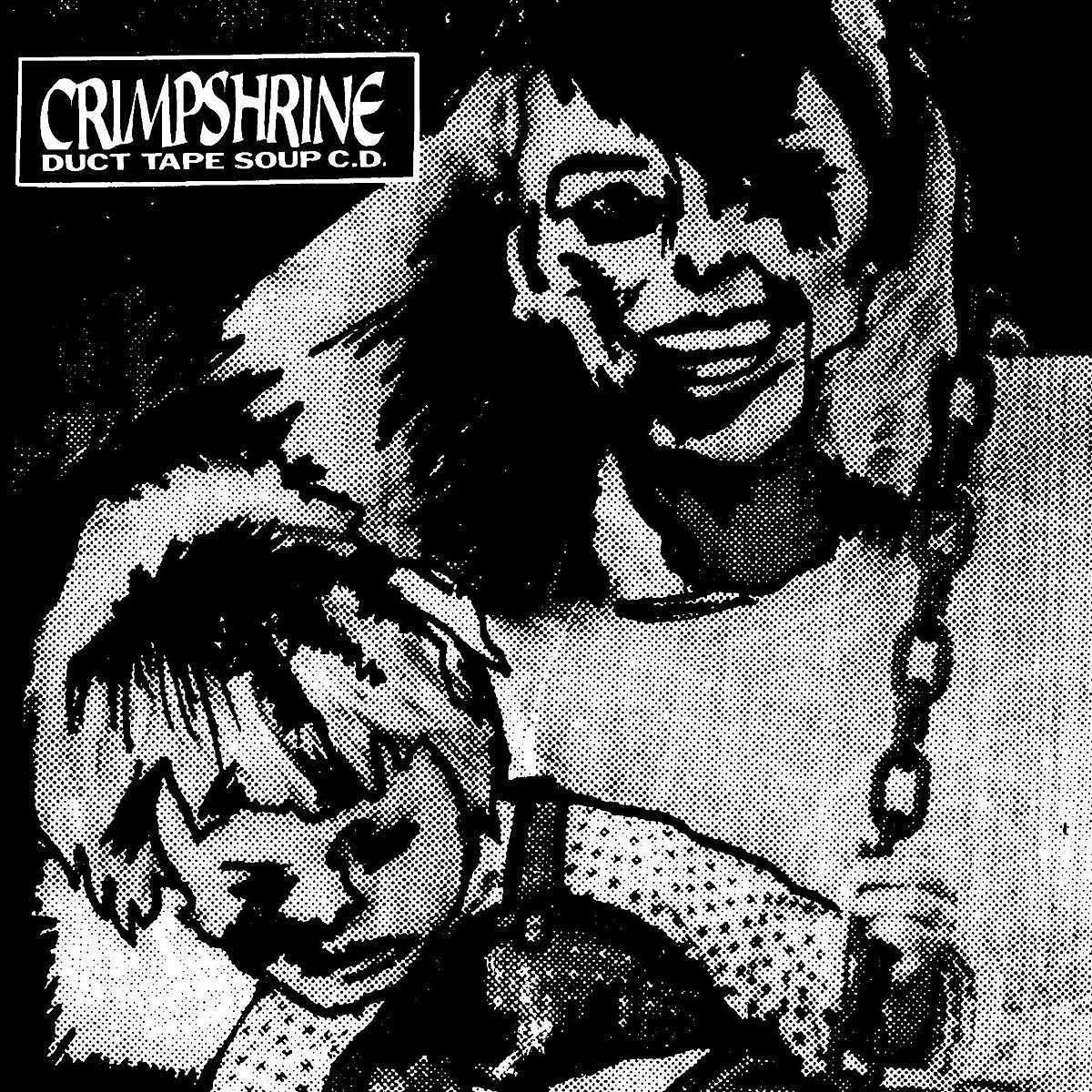
Crimpshrine – Duct Tape Soup (1988)
Throughout their career, Crimpshrine’s lineup included Jesse Michaels (Operation Ivy), Tim Armstrong (Operation Ivy, Rancid), Aaron Cometbus (the Cometbus zine, Green Day side project Pinhead Gunpowder), Pete Rypins (Tilt), and others, and though they never got as successful as any of those members’ other bands, they were a huge influence on and a launchpad for all of them. It’s a fun fact that Jesse and Tim were in the band, but they left before Crimpshrine released anything; it’s really vocalist/guitarist Jeff Ott and drummer Aaron Cometbus who were responsible for this band’s sound, and that sound directly inspired Op Ivy, Rancid, Green Day, Jawbreaker (who have a split with Crimpshrine), and other bands from the 924 Gilman scene. And due to those bands’ successes, Crimpshrine’s sound infiltrated punk and pop punk bands across the globe. Jeff Ott sings like he just threw up rocks and the band never had anything in the way of production quality, but beneath the nails-on-a-chalkboard exterior is a discography full of great punk songs with great pop melodies. It might be sort of cheating to choose Duct Tape Soup since, despite being recorded in 1988, it was shelved and not released until 1992 so you could argue it’s not an “’80s punk album.” But it’s also one of Crimpshrine’s finest collection of songs, and considering Crimpshrine’s most direct influence was on locals who were seeing them live, these songs were in fact most likely heard by the bands who popularized what Crimpshrine started.
Pick up Crimpshrine vinyl here.
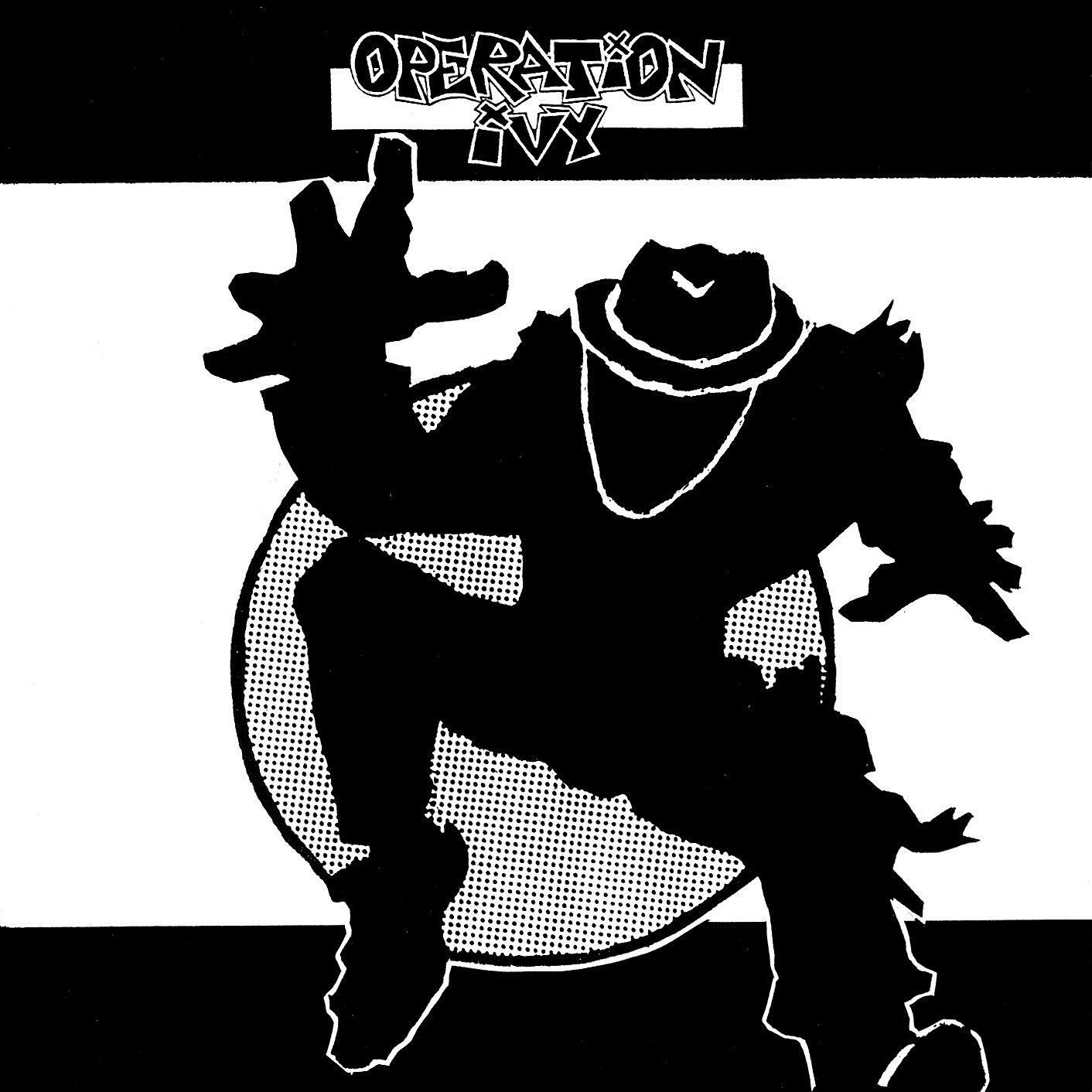
Operation Ivy – Energy (1989)
And last but not least, here is Jesse Michaels and Tim Armstrong (and Matt Freeman and Dave Mello) bringing that Crimpshrine influence to life with Operation Ivy. All this short-lived band managed to release in their two-year career was their 1988 EP Hectic and their near-perfect 1989 album Energy, but despite breaking up just two months after Energy came out, the album went on to influence thousands of bands and it remains a timeless classic today. In addition to directly influencing their friends in Green Day (who have covered “Knowledge” hundreds of times) and of course leading to Tim Armstrong and Matt Freeman’s next band Rancid, Op Ivy laid the groundwork for virtually every poppy punk band who dabbled in ska, and in the 1990s, that was a lot of bands. Energy has all the grit of a hardcore album, but these songs are singalong anthems, and it’s nearly impossible to imagine what ’90s pop punk would’ve sounded like without the influence of Energy. Rancid and Green Day carried the torch and gained millions of fans in the process, but almost everyone who found their way back to Energy could quickly recognize it as the catalyst for the Bay Area pop punk explosion. No more than 300 people were in the room when Op Ivy broke up on stage at their final show, but if Mike Petryshyn achieves his dream of getting them back together for Riot Fest, it’s gonna be another Jawbreaker/Misfits scenario. They’re gonna play to thousands.
—
RELATED:
* 12 classic ska-punk albums to prepare you for the impending ska-punk revival
* We reviewed all 101 songs on ‘Short Music For Short People’ for its 21st bday
* 10 great ’90s punk concert videos
* 20 great covers of classic punk songs by ’90s/’00s punk bands
—
Read past and future editions of ‘In Defense of the Genre’ here.







